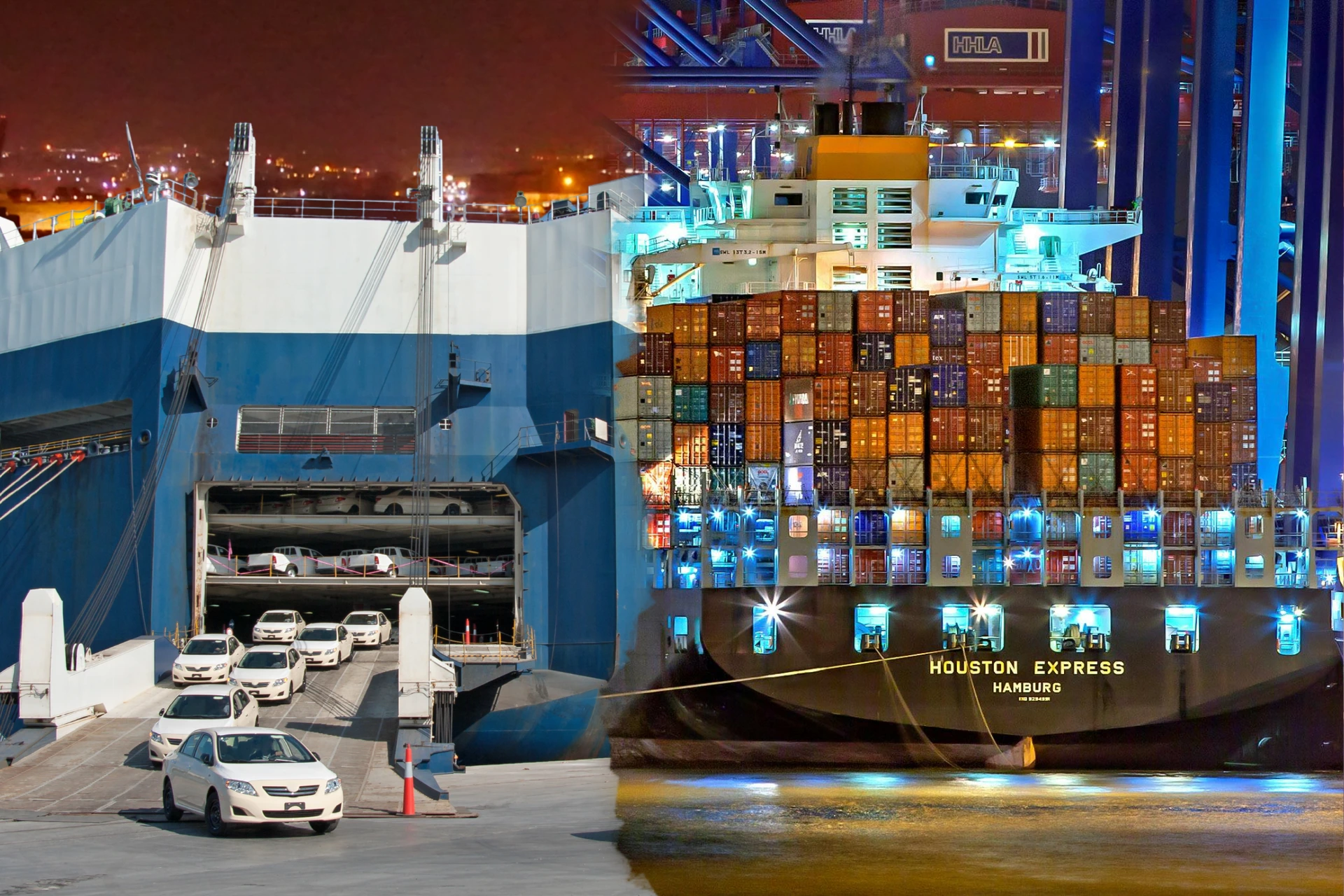
When you ship a vehicle across the U.S., you expect it to arrive on time. But what happens when it doesn’t? Car delivery delays are not uncommon, and they often leave shippers asking a critical question: who’s responsible?
At Transportvibe, we connect thousands of customers to reliable auto transport services every year, and delivery delays are one of the most frequently asked-about issues. In this guide, we’ll break down what causes delays, who is legally and practically responsible, and how you can protect yourself when shipping a car.
Table of Contents
- Common Causes of Car Delivery Delays
- Responsibilities of Auto Transport Carriers
- Broker Accountability in Delivery Delays
- What Role Does the Customer Play?
- What Does the Bill of Lading Say?
- Legal Protection and Insurance Coverage
- Real-Life Scenarios Explained
- Tips to Avoid Delivery Delays
- How to File a Complaint or Claim
- Final Thoughts
Common Causes of Car Delivery Delays
Before pointing fingers, it’s important to understand the typical reasons why a car might not arrive on time. These include:
1. Traffic and Road Conditions
Accidents, detours, and construction zones can significantly alter timelines.
2. Weather Delays
Storms, snow, or hurricanes can make routes dangerous or impassable.
3. Mechanical Issues
Breakdowns with the carrier truck itself are rare but can cause major slowdowns.
4. Driver Hours and FMCSA Compliance
Federal Motor Carrier Safety Administration (FMCSA) limits how many hours a driver can operate in a day. Delays often occur when a driver reaches their daily limit.
5. Scheduling Conflicts
Sometimes, delays are caused by prior deliveries or pickups running late, especially with multi-load carriers.
6. Customer Issues
In some cases, the pickup or delivery party is unavailable, or gives the wrong address, resulting in delays.
Responsibilities of Auto Transport Carriers
Carriers are the direct service providers. They are responsible for:
- Picking up and delivering vehicles as scheduled
- Maintaining communication about any changes or delays
- Complying with FMCSA regulations
- Safely transporting your vehicle with proper care
However, most carriers do not guarantee exact delivery dates. Instead, they provide a delivery window (e.g., 3–5 days). As long as delivery happens within that time frame, there is no breach of agreement.
If delays go beyond the agreed window without justification, the carrier may be considered at fault. Still, legal liability often depends on the terms in the contract and the Bill of Lading (BOL).
Broker Accountability in Delivery Delays
Auto transport brokers act as the middleman, helping you find a carrier. While brokers don’t operate trucks, they are responsible for:
- Vetting carriers for reliability and insurance
- Providing accurate quotes and timelines
- Communicating clearly with both the customer and the carrier
If a broker fails to:
- Inform you of potential delivery issues
- Provide accurate ETA
- Replace an unreliable carrier
…then they may bear shared responsibility for delays. This is especially true if their failure caused you to miss a critical deadline (e.g., military relocation, lease end).
TransportVibe Tip: Always work with FMCSA-registered brokers with transparent customer reviews and cancellation policies.
What Role Does the Customer Play?
Customers have responsibilities too. Failing to meet them can cause delays or void damage claims.
You are responsible for:
- Being available for vehicle pickup and drop-off
- Providing accurate location details
- Ensuring your vehicle is ready for transport (e.g., keys, documentation, fuel level)
If the delay is caused by the customer (no one home, inaccurate address), the responsibility falls on the shipper — not the carrier.
What Does the Bill of Lading Say?
The Bill of Lading (BOL) is the legally binding contract between you and the carrier. It outlines:
- Pickup and delivery windows
- Condition of the vehicle
- Liability clauses in case of delay, damage, or cancellation
Most BOLs contain a force majeure clause, which frees carriers from responsibility for delays caused by uncontrollable events (e.g., natural disasters, labor strikes, war).
Read the BOL thoroughly before signing. If delivery dates are vague or not mentioned, clarify it with the carrier before agreeing.
Legal Protection and Insurance Coverage
Auto transport companies must carry liability insurance, but this usually only covers vehicle damage, not delivery delays.
If you’re shipping a high-value car or working under tight deadlines, consider:
- Gap insurance for delay-related costs
- Rental reimbursement if you need a vehicle during the delay
- Guaranteed pickup/delivery services (offered at extra cost)
Some premium carriers offer shipping guarantees, which may entitle you to partial refunds or credits if they fail to meet a contracted delivery window.
Real-Life Scenarios Explained
Scenario 1: Delayed Due to Snowstorm
- Responsibility: Not the carrier. Weather delays are often covered under force majeure.
- Best Action: Monitor weather forecasts and communicate with your carrier in advance.
Scenario 2: Carrier Breaks Down and Delivers 4 Days Late
- Responsibility: Carrier, but protected under mechanical failure clause in BOL.
- Best Action: Contact broker for alternate carrier if available.
Scenario 3: Customer Not Available at Delivery
- Responsibility: Customer. You may be charged for rescheduling or storage.
- Best Action: Assign a representative if you can’t be there.
Scenario 4: Broker Assigns Unreliable Carrier
- Responsibility: Shared between broker and carrier.
- Best Action: Use platforms like TransportVibe to read carrier reviews.
Tips to Avoid Delivery Delays
Here are proactive ways to reduce the risk of car delivery delays:
- Book in Advance
- Booking 2–4 weeks ahead helps secure reliable carriers.
- Ask for a Tight Window
- Request clear pickup and delivery ranges. Avoid vague “5–10 day” ranges.
- Use Enclosed Transport for Urgent Deadlines
- Enclosed trucks often serve fewer customers and have faster routes.
- Track Weather Patterns
- Avoid shipping during snow seasons, hurricanes, or known storm routes.
- Verify Carrier Reviews
- Use TransportVibe to compare companies and read verified ratings.
- Get It in Writing
- Ensure delivery windows, cancellation terms, and refunds are included in your contract or BOL.
- Stay in Communication
- Provide updated contact info, be responsive, and keep in touch with both broker and driver.
How to File a Complaint or Claim
If you believe a delay was due to negligence or breach of contract, take these steps:
- Contact the Carrier First
- Ask for a written explanation of the delay.
- Contact the Broker
- Ask for assistance in resolving the issue. Good brokers will step in to mediate.
- Submit a Complaint to FMCSA
- Visit the FMCSA website and file a formal complaint. Keep all documentation.
- Leave a Review on TransportVibe
- Help others by sharing your experience.
- Seek Legal Advice (for severe cases)
- For financial damages or breach of contract, consider consulting a transportation attorney.
Final Thoughts
So, who is responsible if a car is delayed in delivery? The answer depends on the contract, the cause of the delay, and the communication between the shipper, broker, and carrier.
At Transportvibe, our goal is to help you avoid uncertainty by connecting you with top-rated, FMCSA-compliant auto transport providers. Use our platform to:
- Compare real reviews
- Read service terms in plain English
- Get transparent, accurate quotes
Need peace of mind for your next car shipment?
Get Your Free Quote Now and find the most reliable auto transport companies in the USA.














